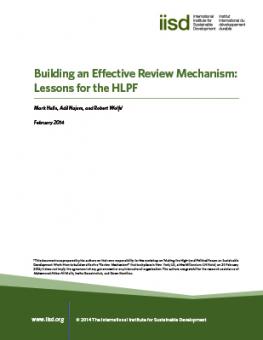
Building an Effective Review Mechanism: Lessons for the HLPF
The High-Level Political Forum (HLPF) was established in 2012 (General Assembly resolution 66/288, "The future we want") as a replacement for the Commission on Sustainable Development.
In 2013 the General Assembly directed (67/290) the HLPF to conduct regular reviews, starting in 2016, of the follow-up and implementation of sustainable development commitments and objectives, including those related to the means of implementation, within the context of the post-2015 development agenda. The objective of this background paper is to draw lessons from existing multilateral review mechanisms to inform the design of the review process
Participating experts
You might also be interested in
Agreement on Climate Change, Trade and Sustainability: A landmark pact for trade and sustainability
The ACCTS pact, signed by Costa Rica, Iceland, New Zealand, and Switzerland, aligns trade and environmental policies, tackling fossil fuel subsidies, eco-labels, and green trade.
Addressing Carbon Leakage: A toolkit
As countries adopt ambitious climate policies, this toolkit examines strategies to prevent carbon leakage—when production and emissions shift to nations with weaker climate policies—and explores the trade-offs of each approach.
IISD Trade and Sustainability Review, December 2024
This edition of the IISD Trade and Sustainability Review presents four expert perspectives on how agricultural support and subsidies can promote sustainability in developing and least developed countries.
Why Trade Matters in the Plastic–Pollution Treaty Negotiations
The global push to end plastic pollution by 2040 highlights the critical intersection of trade and environmental action, with upcoming INC-5 negotiations focusing on reducing plastic production, consumption, and waste within a fair and effective international framework.